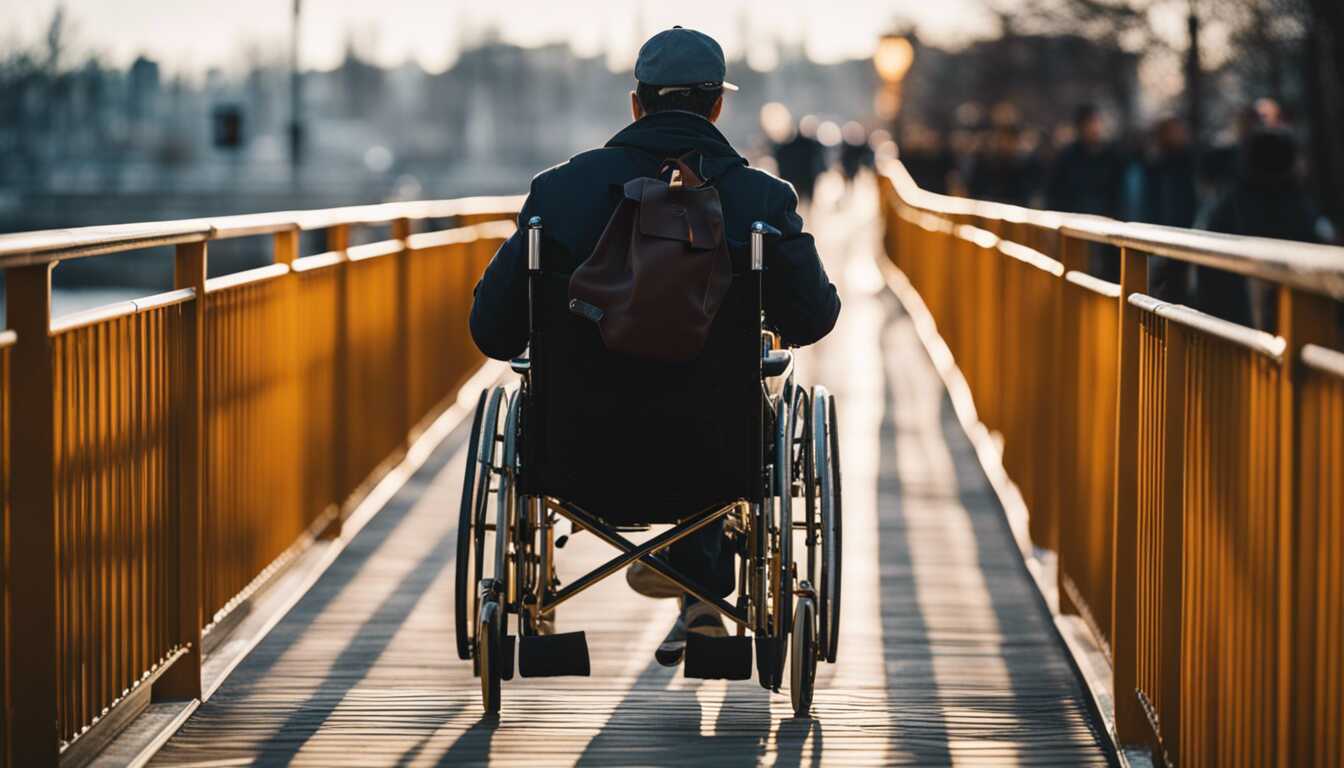
Lawsuit filed against Clark county over ban on standing for people with disabilities on strip pedestrian bridges

A woman who uses a wheelchair due to a spinal injury has filed a federal lawsuit against Clark County, including Las Vegas, over its new ban on standing or stopping while crossing pedestrian bridges on the Strip. The lawsuit, filed by the American Civil Liberties Union of Nevada, alleges that the ordinance unfairly targets people with disabilities and violates their rights under the First Amendment.
The lawsuit, filed by the American Civil Liberties Union (ACLU) of Nevada, claims that the new ordinance unfairly targets individuals with disabilities, making it difficult for them to use pedestrian bridges on the Strip. Lisa McAllister, the plaintiff in the case, highlighted that as a wheelchair user, she often needs to stop due to fatigue, wheelchair malfunctions, or blocked paths. The lawsuit contends that the ordinance effectively denies the use of pedestrian bridges for McAllister and others with disabilities, impacting their ability to move around the area freely.
Legal challenge
Furthermore, the legal challenge argues that the ordinance not only infringes upon the rights of people with disabilities but also violates their First Amendment rights, such as the freedom to protest or perform on the street, as it restricts any activity that causes another person to stop on the pedestrian bridges.
In response to the lawsuit, a spokesperson for the county stated that they do not provide comments on ongoing litigation. However, the county had previously emphasized that the ordinance aimed to enhance public safety by ensuring a continuous flow of pedestrian traffic across the bridges. The county stated that the measure sought to maintain a safe environment for tourists and visitors while traversing the area.
The ACLU of Nevada is seeking judicial intervention to annul the ordinance, asserting that it not only impacts the rights of individuals with disabilities but also restricts activities protected under the First Amendment. The lawsuit aims to challenge the legality of the ban, emphasizing that it hampers the fundamental rights of individuals with disabilities and infringes on their freedom of movement and expression.
The federal lawsuit against Clark County's ban on standing or stopping on pedestrian bridges in Las Vegas Strip raises significant concerns about the rights of individuals with disabilities and the balance between public safety measures and civil liberties. The outcome of this legal challenge will likely have far-reaching implications for how local authorities implement regulations that affect the mobility and rights of individuals with disabilities, as well as the broader application of public safety measures in popular tourist destinations.
This legal dispute underscores the ongoing dialogue between civil liberties, accessibility and public safety, prompting a closer examination of the intersection between these fundamental aspects of civic life. The resolution of this case will serve as a pivotal moment in defining the parameters of inclusivity, freedom of movement, and public safety regulations in urban spaces, particularly in the context of accommodating individuals with disabilities.
Share news















